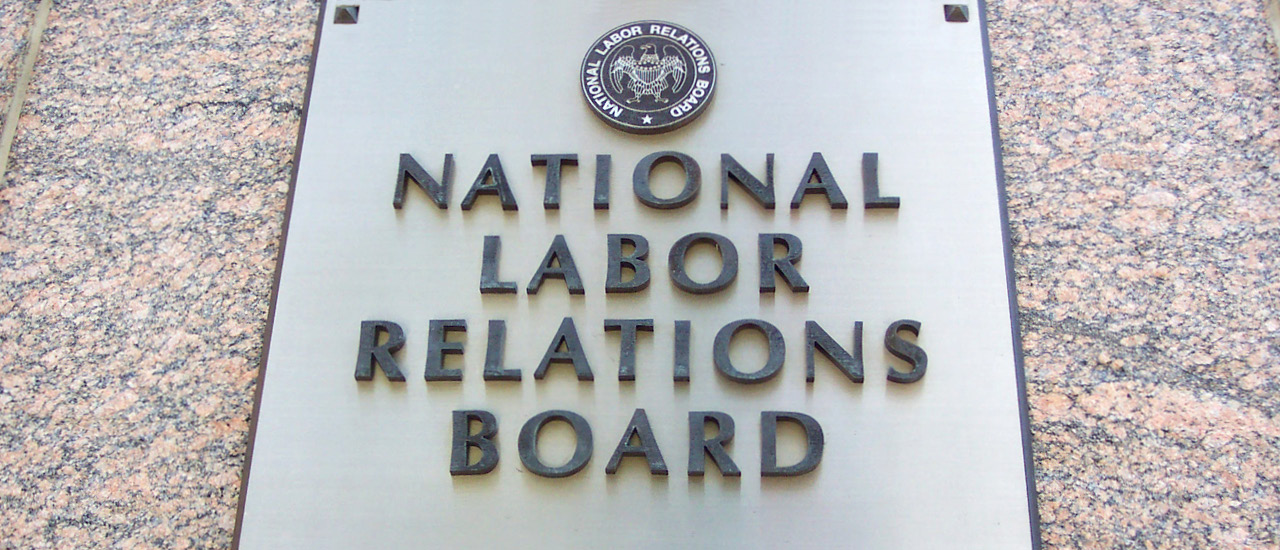NLRB Gives Employers More Control Over Union Workplace Access

The Trump Administration is again upsetting precedent, in this case precedent labor unions relied on to unionize certain employers which allow public access to its property.
The National Labor Relations Board has long interpreted the National
Labor Relations Act as prohibiting employers from denying nonemployee union organizers access to areas of their workplaces which are open to the public (e.g., the cafeteria in a hospital).
Last month, in an effort to balance an employee’s Section 7 rights (to engage in unionizing activity) with an employer’s private property rights, the board overturned its 38-year-old precedent on this issue.
The NLRB now allows employers to restrict union organizational activities by nonemployees on the employer’s property—even in areas generally open to the public. This is a significant victory for impacted employers.
The board’s recent decision in UPMC, 368 NLRB No. 2, means employers with spaces open to the public, such as cafeterias or restaurants, can control access nonemployee union representatives have to their employees.
Prior to this recent upset, the board consistently found employers violated Section 8(a)(1) of the act when they restricted such access for nonemployee
union organizers who engaged in solicitation and other promotional activities but are not “disruptive.”
Precedent
Reversing this long-standing precedent, the board held:
[T]o the extent that Board law created a “public space” exception that requires employers to permit nonemployees to engage in promotional or organizational activity in public cafeterias or restaurants absent evidence of inaccessibility or activity-based discrimination, we overrule those decisions.
The standard which governs nonemployee access when an employer’s property rights conflict with the right of employees to engage in self organization was established over 60 years ago by the Supreme Court in NLRB v. Babcock & Wilcox Co.
Citing the 1956 Babcock decision, the board noted:
[t]he Act requires only that the employer refrain from interference, discrimination, restraint, or coercion in the employees’ exercise of their own rights. It does not require that the employer permit the use of its facility for organization when other means are readily available. Babcock, 351 U.S. at 113−114.
Accordingly, we find that an employer does not have a duty to allow the use of its facility by nonemployees for promotional or organizational activity.
The fact that a cafeteria located on the employer’s private property is open to the public may decide what types of activities, if any, it will allow
by nonemployees on its property.
The board also made clear its about-face decision will apply to all pending cases.
Uniform Policies
For employers, this is welcomed news. This holding means an employer may generally decide what types of activities, if any, it will allow nonemployees to partake in on its premises.
Be warned, however, any policy you adopt in regard to nonemployees must be enforced uniformly. Employers may not discriminate between nonemployee union representatives and other nonemployees.
If you prohibit all solicitation and distribution of nonemployees, you should be in the clear. However, if you allow the local Girl Scout troop to come in and sell Thin Mints and Samoas, you better be prepared to let the union in too.
If you allow the local Girl Scout troop to come and sell Thin Mints and Samoas, be prepared to let the union in too.
Remember: this holding is strictly about nonemployees. The rules governing employees remain unchanged. You may still prohibit employees from soliciting or distributing literature on working time and in working areas but you cannot prohibit all on-site solicitation or distribution by employees like you can for nonemployees.
Employers with public access areas should review their policies in light of this new standard.
Odds are, your policy is much more generous to non-employee union organizers than it now needs to be.
But remember, the 2020 election is around the corner. These long-established precedents that are overturned could be early agenda items when a new administration rides into town.
About the authors: Robert G. Brody is the founder and managing member of Brody and Associates LLC, a management-side labor, employment, and benefits law firm in Westport. Lindsay M. Rinehart is an associate with Brody and Associates, LLC. She represents employers in both labor and employment law matters.
RELATED
EXPLORE BY CATEGORY
Stay Connected with CBIA News Digests
The latest news and information delivered directly to your inbox.


